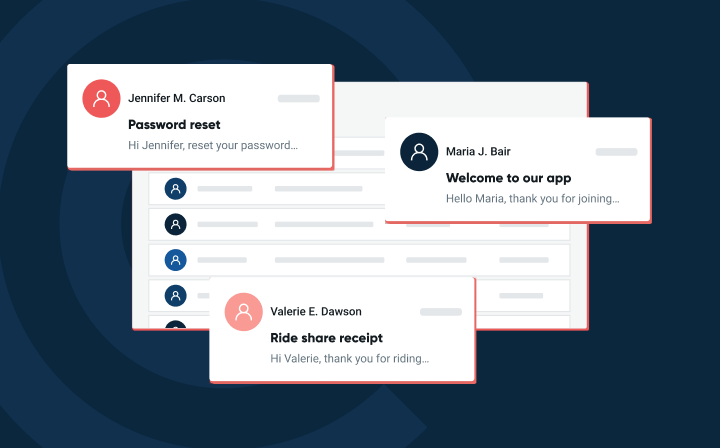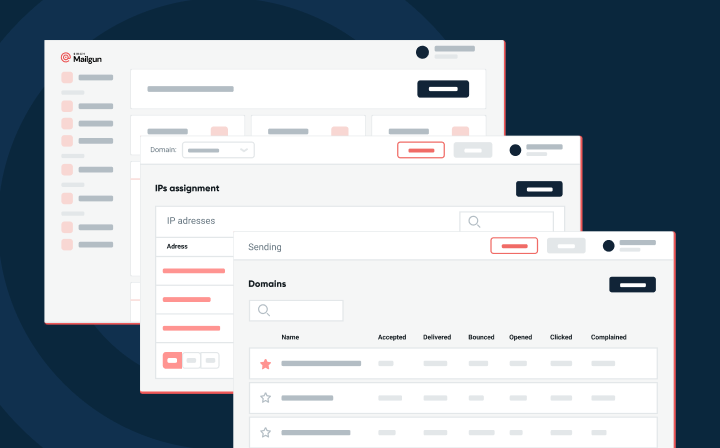Deliverability
Email hard bounces: The brick walls of failure
Hard bounces can be challenging to get rid of, but there are some simple solutions to this deliverability issue. We’ve got the answers in this post.
PUBLISHED ON
We’ve talked a lot about email bounces and email bounce rates as a whole in the past before, but we’ve really only ever dipped our toes into the different types of bounces — hard bounces and soft bounces. Why is that? Well, they’re the smaller components that makeup more complex deliverability issues. A cog in the wheel, a fruit in the basket, a piece of the pie, or whatever other metaphor floats your boat.
Thankfully, there isn’t any harm in defining them. For the sake of keeping this short and sweet, let’s talk about the most straightforward of the two bounce types: hard bounces.
Table of content
Common reasons for hard bounces
What can hard bounce emails do to your email deliverability?
Why stop sending if hard bounce emails don’t exist?
What are email hard bounces?
Hard bounces mean that a message cannot be delivered due to an unchanging, permanent reason. There is nothing you can do to fix it, it just isn’t happening. Some examples of hard bounces are non-existent addresses, invalid domain names, the recipient’s mail server doesn’t exist, etc. As all of these examples suggest, delivery isn’t possible because there isn’t anything to deliver to in the first place.
Common reasons for hard bounces
Hard bounces are usually bigger issues that are either more difficult to resolve, or that cannot be resolved. Here are some of the most common reasons:
Invalid email addresses or non-existent email addresses: When an email is sent to an address that doesn't exist or has been deactivated, it results in a hard bounce.
Domain-related issues: Issues such as domain nametypos or DNS misconfigurations can lead to hard bounces.
Blacklisting: If your email server or IP address has been flagged as a source of spam, it may be blocked by recipient servers, resulting in hard bounces for your emails.
Authentication failures: Emails that fail authentication checks, such as SPF (Sender Policy Framework) or DKIM (DomainKeys Identified Mail) validation, may be rejected by recipient servers, leading to hard bounces.
What can hard bounce emails do to your email deliverability?
That depends on your ESP’s hard bounce policy. For example, here at Mailgun, we stop attempting delivery after the first send. Considering they are a hard stop when it comes to your sending, most email service providers (ESPs) will stop attempting delivery after the first attempt. No point in running into a wall over and over again, right?
Can you fix hard bounces?
The short answer is no.
“Fixing” hard email bounces is a tough ask. Like we said, hard bounces are because of permanent issues that probably aren’t going to go away. Some good things to do if you’re experiencing a lot of hard bounce backs are ensuring you are compliant with email authentication standards like SPF and DKIM, and avoiding triggering spam filters by following best practices. The number one defense is maintaining a clean and engaged email list by regularly removing inactive or incorrect addresses and putting things like sunset policies in place to help guide you to reviving or removing non-engagers.
Why stop sending if hard bounce emails don’t exist?
Because it would hurt your sender reputation if we did! Sending to an email that doesn’t exist to Gmail tells them that you might not be a legitimate sender, and in turn, makes you look like a spammer. Whether you’re seeing a lot of hard bounces with triggered transactional email messages or in your latest email marketing campaign, it’s best to cut them out entirely.
To accomplish this, all you have to do is clean those bad addresses from your email list. List hygiene can be accomplished with just about any email validations service, but we’re quite partial to ours (plus, it just got a major facelift — win).
Let's talk email.
Monitor your bounce rate with Sinch Mailgun
Bounce Classification is a Mailgun Optimize feature that’s powered by Mailgun sending data. It classifies logs from your Mailgun sending to identify high impact bounces that require the sender's attention.
Bounce Classification works by identifying the bounces caused by your actions as a sender. This eliminates most soft bounces that might register due to temporary issues like network interruptions, and focusses in on the hard bounces that impact your email deliverability the most including:
Bounces from policy violations
Bounces from low reputation
Bounces due to blocklisting
Bounces to do issues with authentications like DMARC






